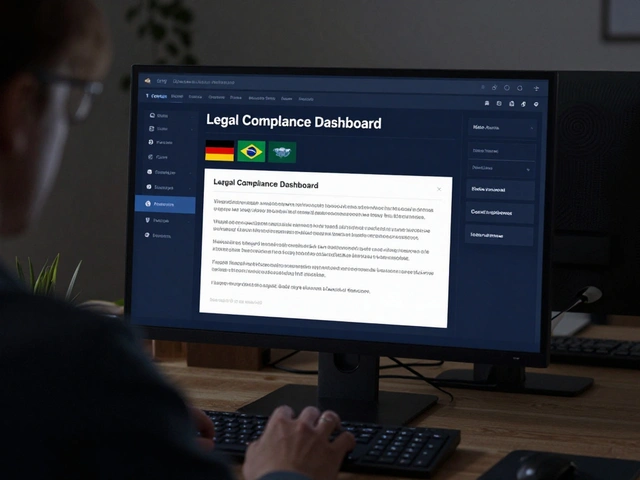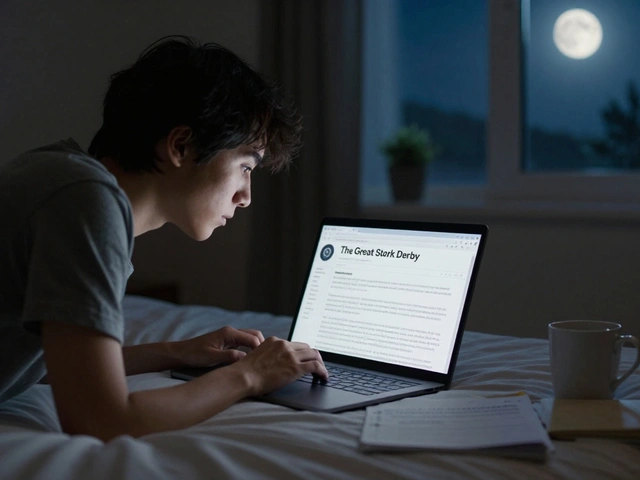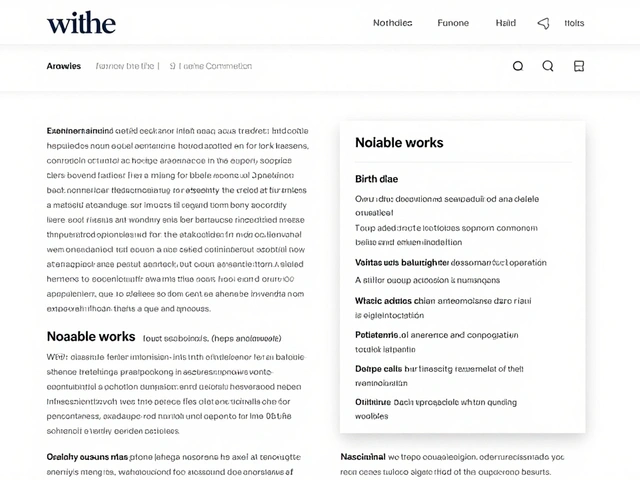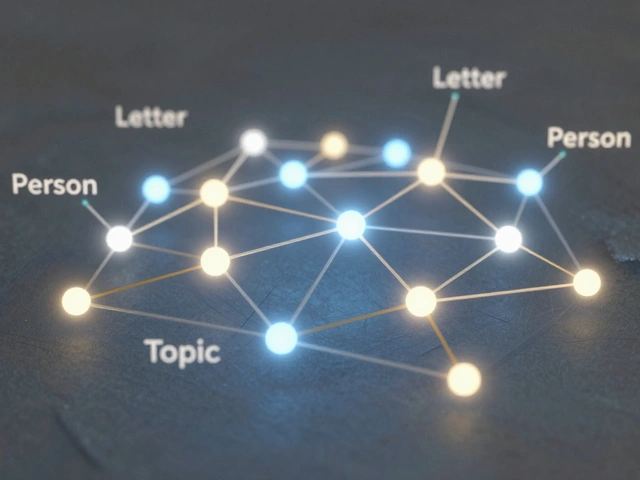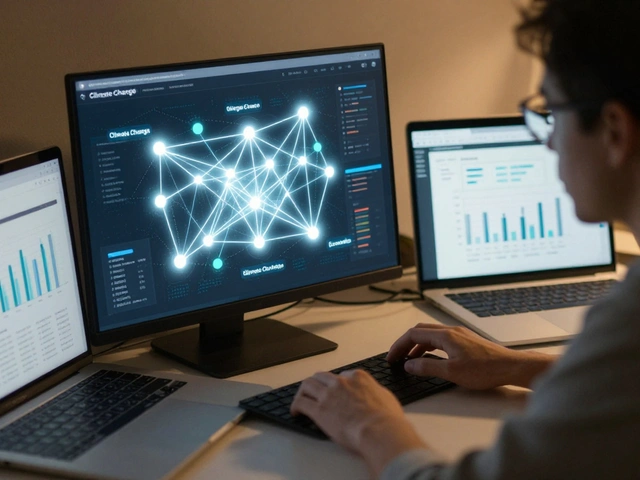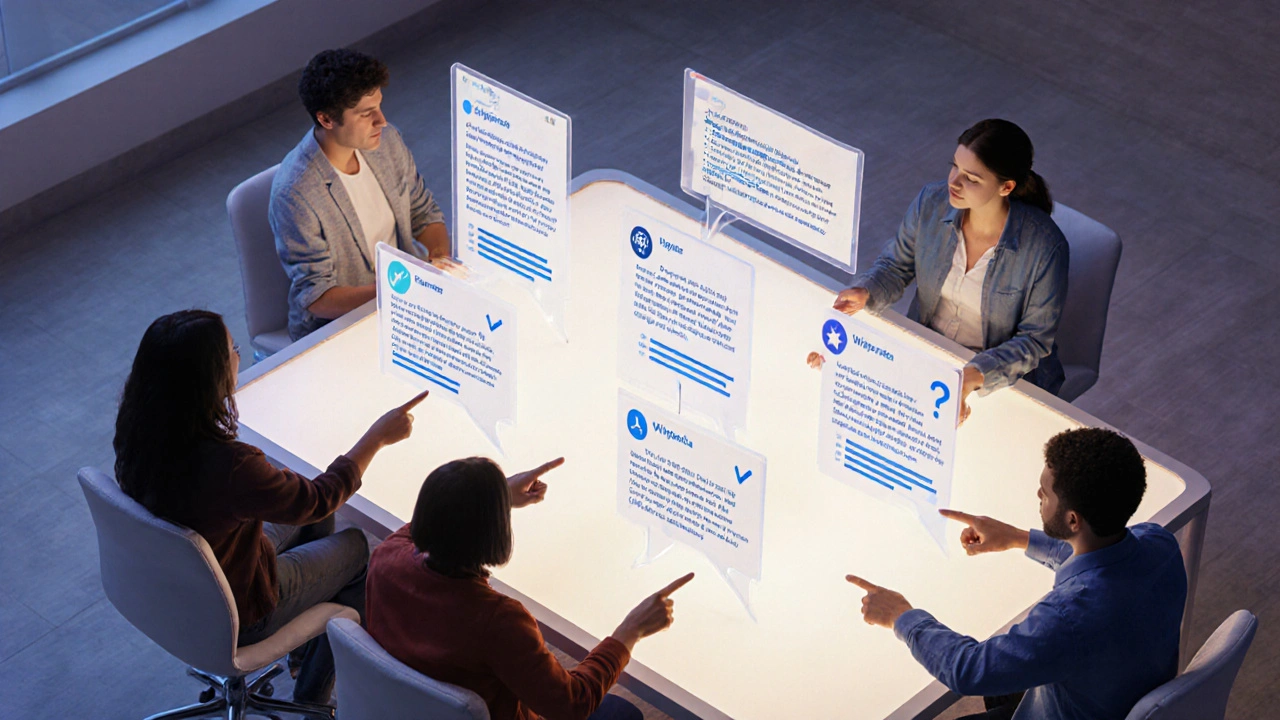
Wikipedia isn’t just a website where you read facts-it’s a living, breathing community of thousands of volunteers who argue, collaborate, and sometimes clash over what belongs on the site. If you’ve ever clicked "Edit" and thought, "I can fix this," you’re already part of the conversation. But jumping into talk pages, article discussions, or deletion debates without knowing the rules can lead to confusion, frustration, or even blocks. Here’s what newcomers actually need to know before posting their first comment.
Wikipedia isn’t a forum
One of the biggest mistakes new editors make is treating Wikipedia talk pages like Reddit threads or Facebook groups. They post opinions, ask for validation, or vent about how "wrong" someone else is. That doesn’t work here. Wikipedia discussions are not about winning arguments. They’re about building consensus based on reliable sources. Every edit you propose must be backed by something that’s been published elsewhere-books, academic journals, major news outlets. Personal beliefs, anecdotes, or "I think" statements get ignored. If you want to change a sentence about a historical event, you need a citation. Not a tweet. Not a blog. Not your uncle’s memoir.Assume good faith-unless proven otherwise
You’ll see edits that seem wrong, biased, or even malicious. Your first reaction might be to revert it with a sharp comment. Don’t. Start by assuming the other person meant well. They might have misunderstood a policy, misread a source, or just been in a hurry. Use the "Talk" page to ask: "Can you help me understand where this came from?" or "I noticed this change-could we find a source to support it?" Most editors respond better to curiosity than confrontation. If someone keeps making the same mistake after being asked politely, then you escalate. But always start with kindness.Follow the five pillars, not just the rules
Wikipedia has hundreds of policies and guidelines. It’s overwhelming. But you don’t need to memorize them all. Focus on the five pillars-the core principles that guide everything:- Wikipedia is an encyclopedia
- Wikipedia is written from a neutral point of view
- Wikipedia is free content that anyone can use, edit, and distribute
- Wikipedia editors should treat each other with respect and civility
- Wikipedia has no firm rules beyond these
Use the talk page, not the article
If you see something wrong on a Wikipedia article, don’t just change it. Go to the article’s talk page first. Explain what you think needs fixing and why. Link to the source. Ask if others agree. This isn’t bureaucracy-it’s how the community avoids edit wars. If you jump straight into editing without discussion, you risk having your changes undone, especially on high-traffic or controversial articles. Think of the talk page as a meeting room before you start renovating the house. You wouldn’t tear down a wall without asking the neighbors first.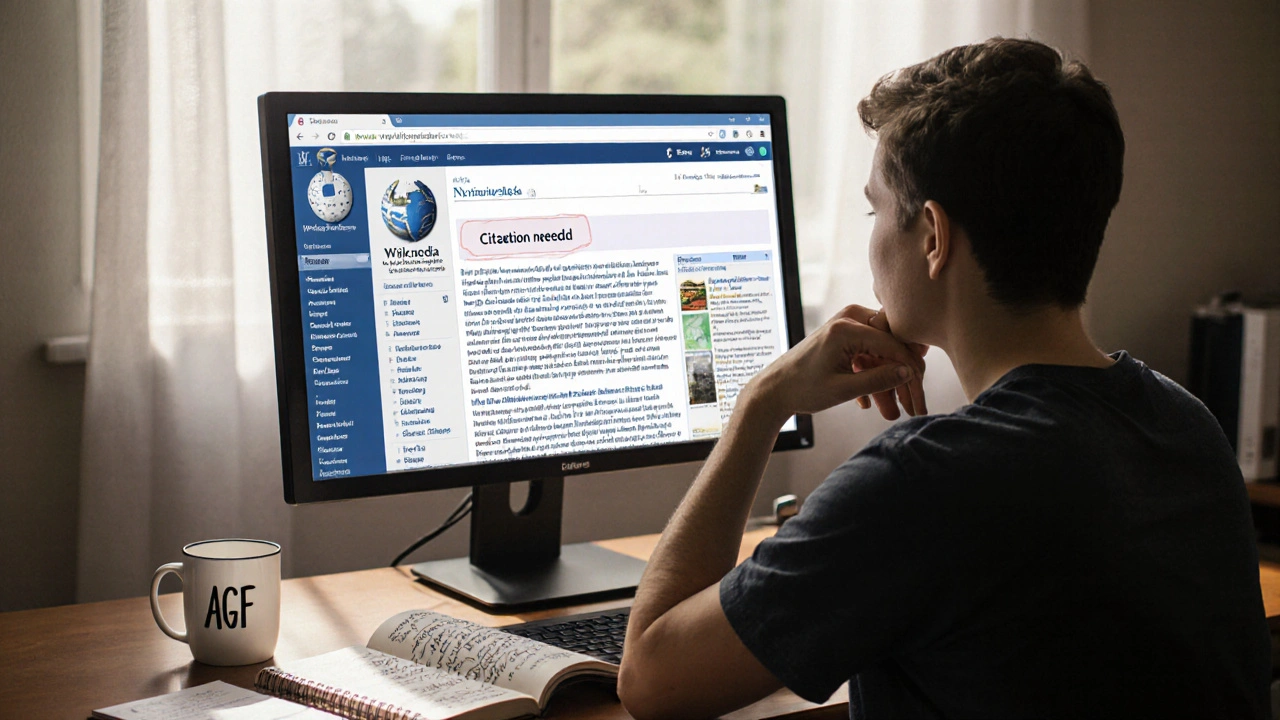
Be ready to lose
You might spend hours researching a source, writing a thoughtful comment, and then have your suggestion rejected. That’s normal. Wikipedia doesn’t run on democracy-it runs on consensus. If 80% of active editors agree on a version, even if you think it’s wrong, you’re not going to change it by arguing louder. Sometimes, the right answer is to walk away and come back later. Or find a different article to improve. The goal isn’t to be right-it’s to make the encyclopedia better. Pick your battles. Not every error needs fixing. Focus on the big ones: factual inaccuracies, missing citations, or clear bias.Learn the lingo
Wikipedia has its own shorthand. You’ll see terms like:- WP: Short for "Wikipedia" (e.g., WP:NPOV = Neutral Point of View)
- AGF: Assume Good Faith
- RS: Reliable Source
- COI: Conflict of Interest
- BRD: Bold, Revert, Discuss-a process for making edits on stable articles
Start small
Don’t try to rewrite a 10,000-word article on climate change on your first day. Start with fixing typos, adding a missing comma, or correcting a broken link. These are called "wikiwalks"-small, safe edits that help you learn the system without triggering alarms. You’ll get feedback faster, and editors are more likely to welcome you if you start by helping, not challenging. Once you’ve made five or ten small edits, you’ll start to understand how the community works. Then you can move on to bigger changes.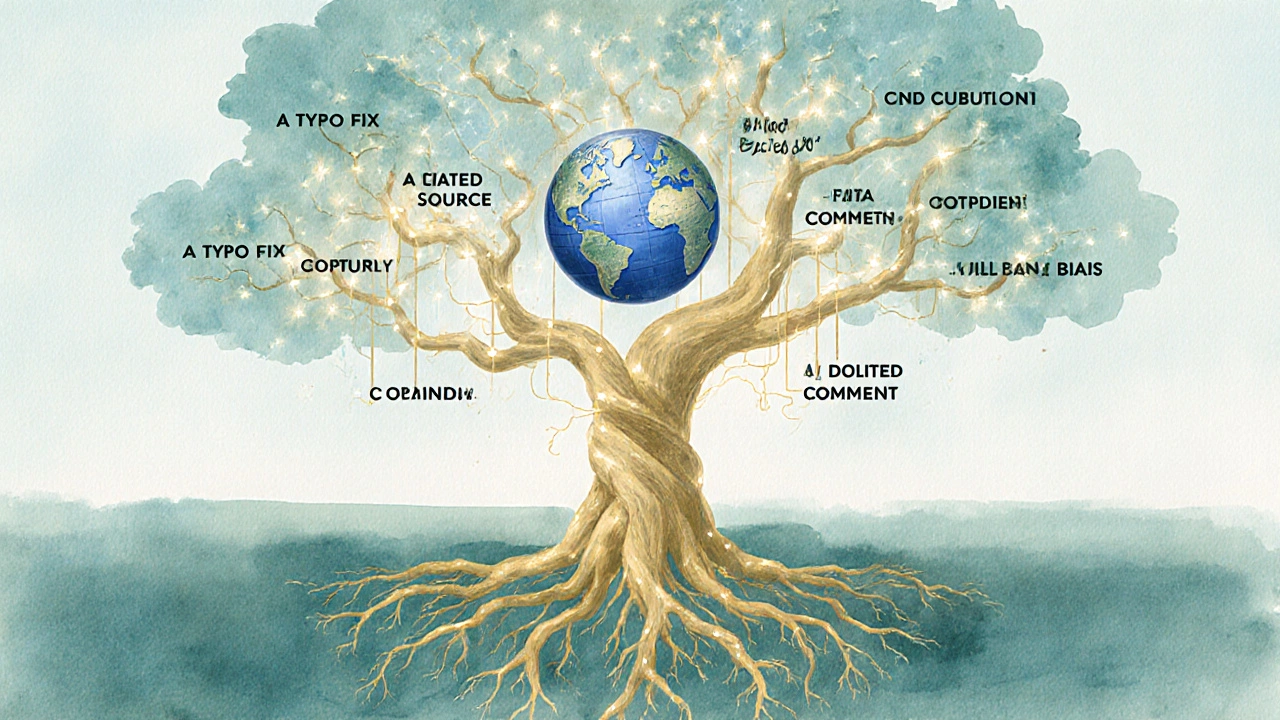
Watch the patterns
Before you join a discussion, read the last 10-15 comments. See how people phrase their arguments. Who gets listened to? Who gets ignored? What kind of sources do they cite? Are people calm, or does it turn hostile? Every article has its own culture. Some are tightly moderated. Others are chaotic. You’ll learn faster by observing than by jumping in. This isn’t just about rules-it’s about reading the room.Don’t expect applause
You won’t get likes, shares, or notifications when you make a good edit. No one will thank you publicly. That’s how Wikipedia works. The reward isn’t recognition-it’s knowing that your edit helped someone, somewhere, learn something accurate. If you’re looking for praise, you’ll burn out fast. The most effective editors are quiet, consistent, and patient. They fix one thing at a time. They don’t need to be the loudest voice. They just show up, every day.What happens if you mess up?
You will. Everyone does. You’ll cite a blog as a source. You’ll accidentally delete a sentence that was correct. You’ll use the wrong tone. It happens. The community doesn’t punish mistakes-it teaches from them. If you get reverted, read the reason. If you get a warning, don’t argue. Just fix it. If you get blocked, it’s usually temporary. Read the message. Learn. Come back. Most editors who stick around past their first mistake become some of the most valuable contributors.Where to go next
If you want to dive deeper, join the Wikipedia Teahouse. It’s a friendly space for new editors to ask questions without fear of judgment. You can also check out the New Users’ Page for step-by-step guides. Both are run by volunteers who remember what it was like to start.Wikipedia doesn’t need heroes. It needs steady hands. It doesn’t need the smartest person in the room. It needs someone who shows up, listens, and cares enough to get it right. You don’t need to know everything. You just need to be willing to learn.
Can I edit Wikipedia from my phone?
Yes, you can edit Wikipedia from any device with a web browser, including phones and tablets. The mobile site has a simplified editor that works well for small fixes like correcting spelling or adding a citation. But for longer edits or discussions, it’s easier to use a desktop. The talk pages and policies are harder to navigate on small screens, so many experienced editors switch to a computer when they’re doing serious work.
Do I need to create an account to edit?
No, you don’t need an account to edit. Anyone can edit anonymously. But registered users get more trust from the community. Anonymous edits are more likely to be reverted, and you can’t access some tools like watchlists or personalized preferences. Creating an account is free, takes less than a minute, and makes your contributions more visible and respected.
What if I’m editing about my own company or organization?
Editing about yourself, your business, or your organization is considered a conflict of interest (COI). Wikipedia requires neutrality, and self-promotion violates that. If you want to improve an article about your company, the best approach is to suggest changes on the talk page using reliable third-party sources-like news articles or official reports-not your own press releases. You can also ask another editor to make the changes for you. Direct edits from COI sources are often removed and can lead to blocks if repeated.
How long does it take to become a trusted editor?
There’s no official timeline. Some editors gain trust after 20 edits. Others take months or years. Trust comes from consistency, not speed. If you make thoughtful, well-sourced edits over time, follow the rules, and treat others respectfully, you’ll naturally earn credibility. Some editors never become admins, but their work still improves the encyclopedia. That’s the real goal.
Can I get paid to edit Wikipedia?
Wikipedia’s policy strictly prohibits paid editing without disclosure. If you’re hired by a company or organization to edit articles about them, you must declare it on your user page and on every edit you make. Many editors who work in PR or marketing choose not to edit Wikipedia at all to avoid violating this rule. Paid editing without transparency is considered deceptive and can lead to blocks or bans.
Why do some articles have so many warnings at the top?
Those banners-like "Citation needed," "Neutral point of view," or "Notability concerns"-are flags added by editors to signal problems. They’re not permanent. They’re invitations to improve the article. If you see one, it’s a chance to help. Add a source. Rewrite a biased section. The more you fix, the fewer warnings stay on the page. These warnings exist because Wikipedia is a work in progress-and every editor plays a role in cleaning them up.
